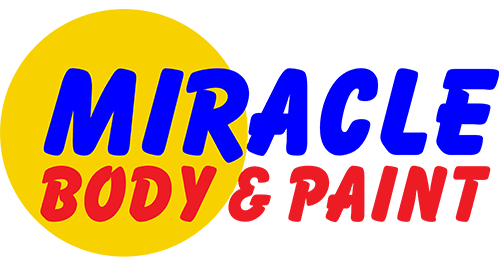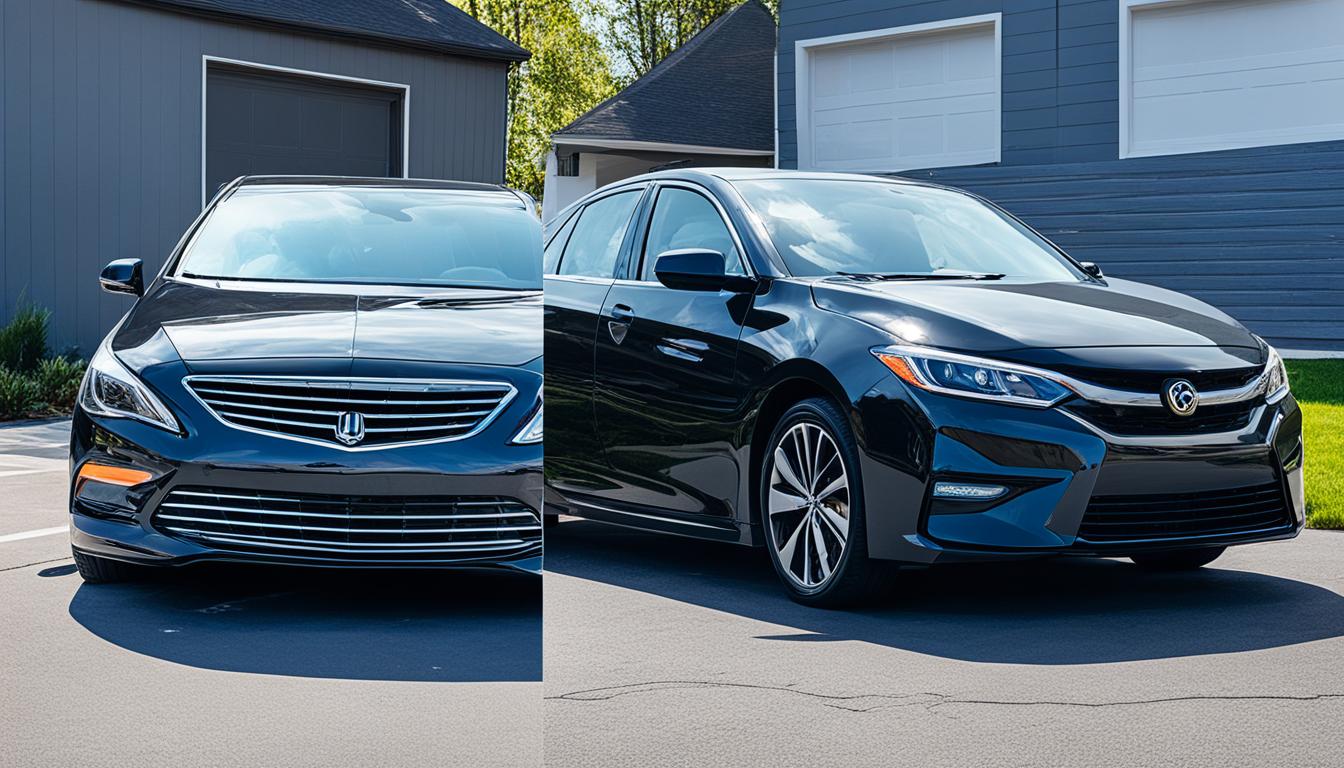
DIY vs. Professional Collision Repair: What You Need to Know
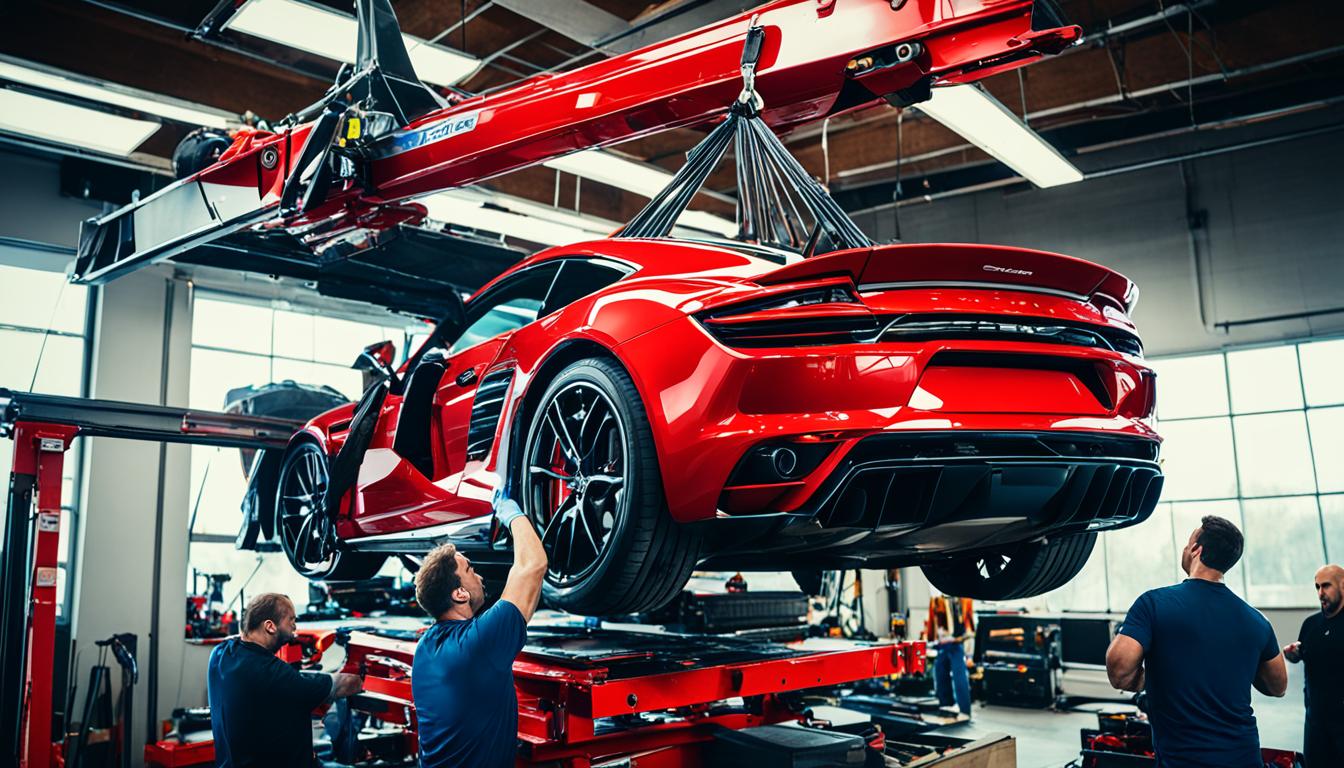
Restoring Your Vehicle to Pre-Accident Condition
The U.S. Department of Transportation wants everyone to know the importance of acting quickly on recalls. In 2019, more than 53 million cars and car parts were recalled. This included big ones like the Takata airbags, Harbor Freight jack stands, and Denso fuel pumps. Every recall is serious, even if not widely known. It’s crucial for your safety to check if your car is on the list. You can do this by using their Recalls Lookup Tool. Just enter your Vehicle Identification Number (VIN) to see if there’s a recall. Then, call the dealer to fix it for free.
Key Takeaways:
- Addressing safety recalls promptly is essential for vehicle safety.
- In 2019, there were 966 safety recalls affecting over 53 million vehicles in the United States.
- All recalls, regardless of visibility, are important for vehicle safety.
- Vehicle owners can use the NHTSA’s Recalls Lookup Tool to check for open recalls using their VIN.
- Contacting the automaker’s local dealership is the next step to schedule a free repair.
Understanding Safety Recalls
Safety recalls are super important for keeping vehicles safe. The NHTSA or vehicle makers find out when a car or part doesn’t meet safety standards. Then, a recall is issued. This might happen because of a problem when the vehicle was made or due to a new safety concern.
Many parts can lead to a safety recall. This includes things like steering columns, fuel systems, and airbags. Also, things like tire and wiring systems issues. Even seats, car seats, and car ramps/jacks can be a problem.
So, if your car is part of a recall, what should you do? First, read the recall letter carefully. Then, get in touch with your dealership right away. Set up a time for your car to be checked or fixed. Don’t forget to keep track of the work done to your car.
Remember, car recalls stay relevant no matter how old your car is. Also, the maker is supposed to fix your car for free if it’s part of a recall.
Examples of common faulty parts that lead to safety recalls:
- Faulty steering columns
- Defective fuel systems
- Malfunctioning wiring systems
- Unsafe tires
- Defective airbags
- Failed engine fan belts
- Unreliable seats/seat backs
- Inadequate car seats and booster seats
- Defective car ramps/jacks
Taking Action on a Car Recall
If your car gets recalled, acting quickly is key for everyone’s safety. To address a recall, follow these steps:
- Check the NHTSA website or contact the local dealership: First, look at the NHTSA website to see if your car has a recall. You can also call your dealership. They will give you details and help with what to do next.
- Schedule an appointment with a repair shop or dealership: After finding the issue, make an appointment. Choose a local repair shop or dealership approved for these repairs. They can fix the problem for free and properly.
- Keep documentation of recall repairs: It’s important to save all papers after the fix. This includes any bills and messages with the repair place or dealership. This proof helps if there are questions later.
- Contact the manufacturer for further assistance: If fixing the recall is hard, talk to the car’s maker. They have special customer service to assist. They can advise you on what to do next.
Following these steps makes sure a car recall is dealt with fast and right. It shows you care about safety on the road for everyone.
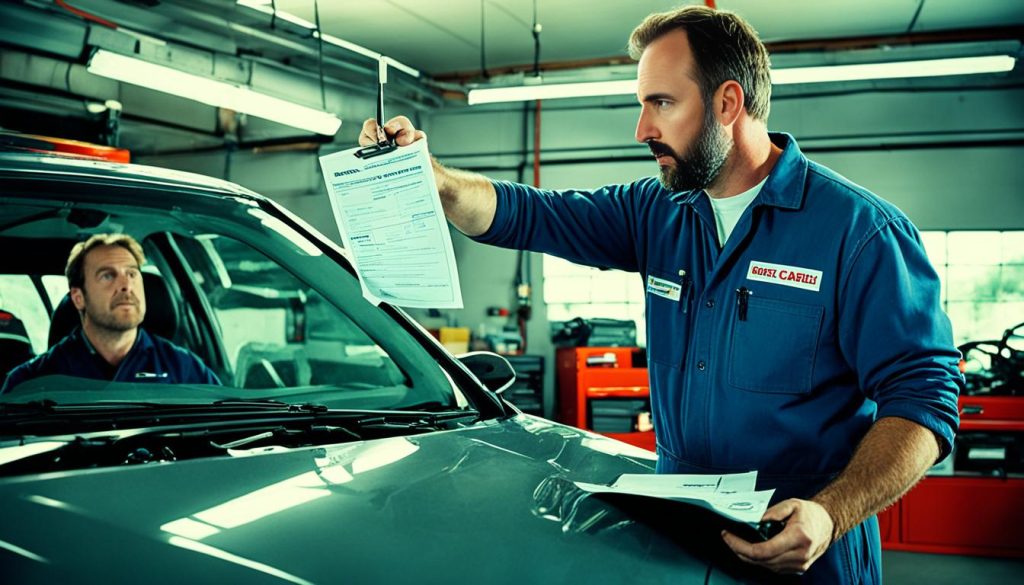
Being proactive in checking recalls and acting fast is important. Always check the NHTSA site and consider getting recall alerts. This way, you’ll know about safety issues with your car quickly.
Urgency of Addressing Recalls
Addressing safety recalls quickly is vital. It keeps vehicle owners and others safe on the road. Not getting a recall fixed could lead to more accidents and injuries.
A car might be hard to sell if it has an open recall. Buyers avoid cars with recalls because they care about safety. Also, insurance costs might go up for cars with unfixed recalls.
Vehicle owners should check the NHTSA database often. The database helps check for recalls by using the car’s VIN. This way, owners can make sure their cars are safe.
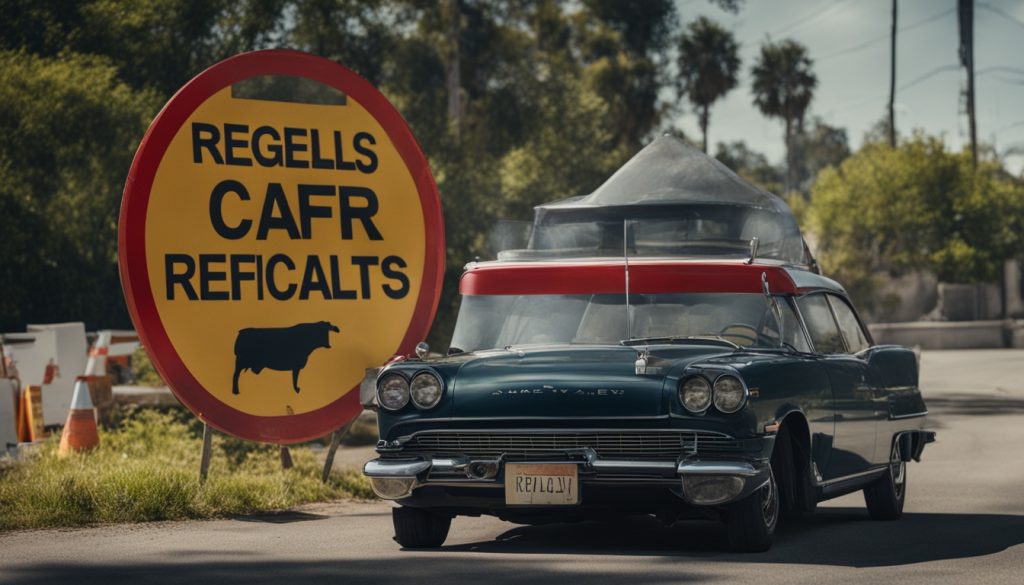
Keeping your contact info up to date with the manufacturer is key. It ensures you get any recall notifications quickly. This can prevent accidents and keep everyone on the road safe.
Fixing recalls is crucial, but so is regular maintenance. Things like checking tire pressure and testing brakes are important. This keeps your car safe and lowers the risk of accidents.
Conclusion
It’s key to deal with safety recalls right away for our safety and that of others. There are many recalls each year, so quick action is vital. When we put safety first and fix recalls soon, we make the roads safer for all.
The National Highway Traffic Safety Administration (NHTSA) helps us check for recalls and get free fixes. It’s crucial not to overlook recalls. Ignoring them can make driving risky, raise our insurance costs, and make selling the car harder.
Fixing recalls fast means our cars are up to safety standards. This lowers the chances of accidents and harm. It’s a way to look out for ourselves and help keep the roads safe. Let’s make safety a top priority and handle recalls without delay for a safer driving world.

